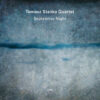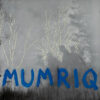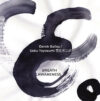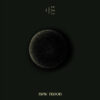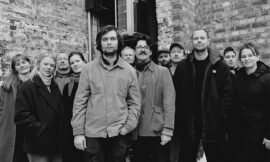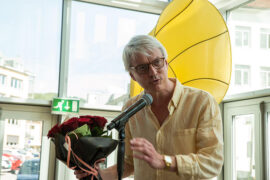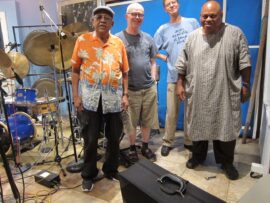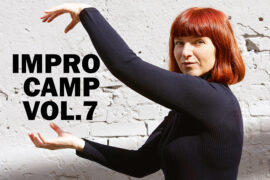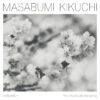
Pianist Masabumi Kikuchi (1939-2015) was a unique and extraordinarily dedicated musician who lived his very own intense musical passion and has left a treasure of substantial music. Considered the quality of his music, his collaborations and his acknowledgement at his midlife he could have been pretty satisfied with it. Masabumi Kikuchi aka Poo however felt it differently. He continued figuring out music relentlessly, and passionately he continued elaborating it in depth.
Kikuchi was a musician that totally identified himself with a specific tone as a tone and executed it accordingly. He didn’t expand or distort it but made it strong and complete in itself and out of itself. Every tone became bound to its spot in the universe. For listeners his tones come from far away in the universe and at the same time they own visceral earthiness and materiality. Sentimental or melancholic floating is absent in this music. Kikuchi’s turns in the music can hit hard and touch listeners deeply (pianist Ithan Iverson describes such a moment in his liner notes to Kikuchi’s «Black Orpheus» album (ECM)). He is able to retrieve and reveal great tunes in its purity and innocence.
The album has six tracks, four re-creations of evergreens, one key original by Kikuchi himself and an improvisation. Many people will have stored the charm of the original tune of the four evergreens in their subconscious. The re-creations and re-contextualization of those will potentially resonate with listeners’ more or less hidden sonic floor.
«Ramona» (Mabel Wayne, 1928) is a strong, almost 100 years old silent movie tune, originally recorded by Dolores del Río in 1928. Dutch Blue Diamonds’ version (1960) might be a strongly remembered one. Kikuchi re-creates it by first breaking it up into ‘far away’ reharmonized fragments providing a background mold for the endearing emergence of the pure substance and mood of the tune. His phrasing lends the music its strong and tender string to sing itself.
«Summertime», George Gershwin’s piece from the opera «Porgy and Bess» (1934), a deep amalgam from a diversity of sources and one of the most often interpreted evergreens continues the ‘southern line’. Kikuchi cares for keeping the articulation of the well-known tune (with its ingenious branded entrance phrase «Summertime, and the living is easy. Fish are jumping, and the cotton is high») subdued and highly suggestive. The music here originates from the deeper inner side of the tones of the tune. Tension is not resolved but ‘amplified’ or lifted. Only after eight minutes the basic tune creeps out and appears on the audio horizon. The dynamics of his diving in and out of tones, holding and leaving them and thereby purifying and connecting them over a greater span, is amazing. Kikuchi renders an antithetic version of this classic evergreen. Personally, I like it as much as Joni Mitchell’s version of «Summertime».
On «My Favorite Things» (1959), Richard Rogers’ waltz theme from the Rogers and Hammerstein musical «The Sound of Music», Kikuchi renders two versions. Kikuchi does not go straight to the tones of the captivating tune of this evergreen most known maybe from John Coltrane’s extended ‘easternizing’ version (1961), a precursor to his musical prayer «A Love Supreme» (1964). Rather, he catches the flowing air around the melody and creates undulating movements with starkly contrasting high and low registers. In the second course of the next track the music becomes a whirl into a deep, light hole where the feeling of time vanishes, and the music takes on de-temporalizing traits.
«Impro 5» is a creation that musically does something analogue to what happens when water is pouring onto dusty grounds and seeks its way to spread. For listeners it may trigger also other organic process associations. It is however no purposeful imitation but rather a creational process triggered and guided by musical resistances.
«Little Abi» is a cornerstone of his own compositional work, first recorded in 1972 with drummer Elvin Jones and bassist Gene Perla. Through his career it appeared in continuing refinements. On this album we can listen to his final shaping of the piece accessible to us. It is played lento, engrossed in deep inner calm and sublime acceptance with subtle emotional shadings passing by. Moving with his breathing, the music makes its way occasionally encouraged by his whisperings to reveal itself. Beginning and ending moods coincide finally in still water.
As indicated Masabumi Kikuchi went on his very own musical pilgrimage after having worked with Gil Evans and Miles Davis (recordings with Davis are still on the shelf). Intuitively he made his way into something he could really identify with deep from inside and thereby satisfy the needs of his own esteem. He did it alone and in countless session with a small selection of extraordinary younger musicians especially with bassist Thomas Morgan. In public concerts and recordings, he brought it in full into Tethered Moon, a legendary trio with bassist Gary Peacock (whom he knew from the period that Peacock spent in Japan) and drummer Paul Motian that started in 1990s. He also was a substantial part of the late groups of Paul Motian that provided a fertile soil resulting in quite some remarkable music full of character whose value and impact will last, amongst others with music of Edith Piaf, Kurt Weill, Jimi Hendrix and Puccini («Tosca»). After the 2016 release of his solo album «Black Orpheus» (ECM), a recording of a 2012 recital at Bunka Kaikan Hall in Tokyo, the book of Kikuchi’s live recordings seemed to be closed. However now «Hanamichi», a later solo studio recording at New York Klavierhaus, arranged by Korean producer Sun Chung about a year later, December 2013, appears on Chung’s new label Red Hook as release number 1.
As Sun Chung describes it in the liner-notes, it was a last-minute dramatic thing resulting in pure brilliance, turning out as Poo in his essential. I experienced him similarly when meeting him in March 2013 for a longer talk at Café Sabarsky of Neue Galerie in Manhattan. He just came from the hospital where an injury of his left hand had been treated. I was worried because he had to do a solo performance at a Paul Motian tribute next day (March 20) at Symphony Space. Not only in the hours long conversation he changed between sharpness and otherworldliness. The next evening, he performed one of the most intense and condensed contributions of the evening at Symphony Space.
Henning Bolte
Masabumi Kikuchi (p)



